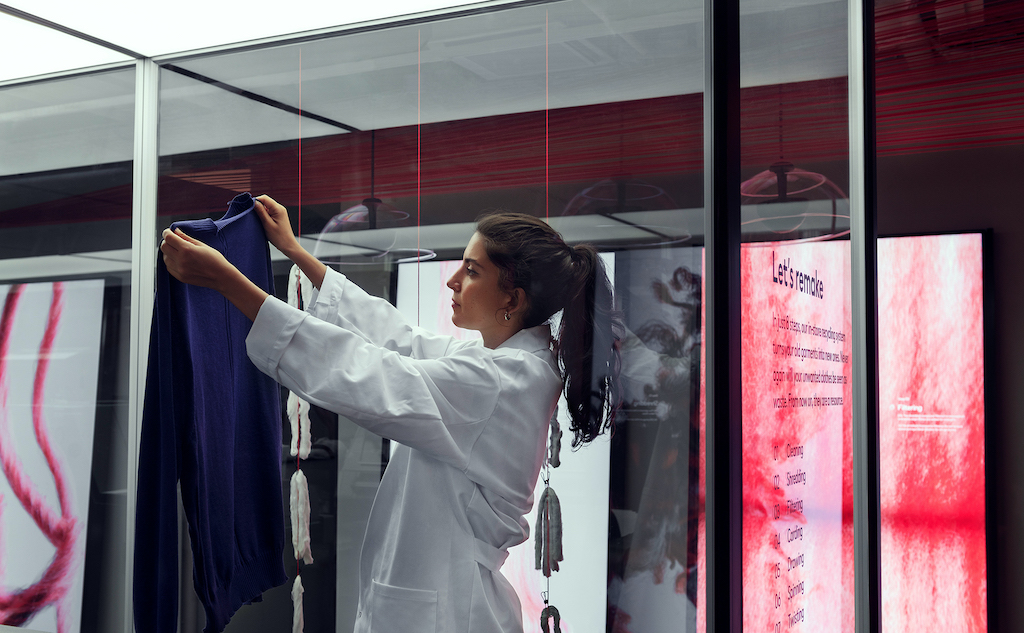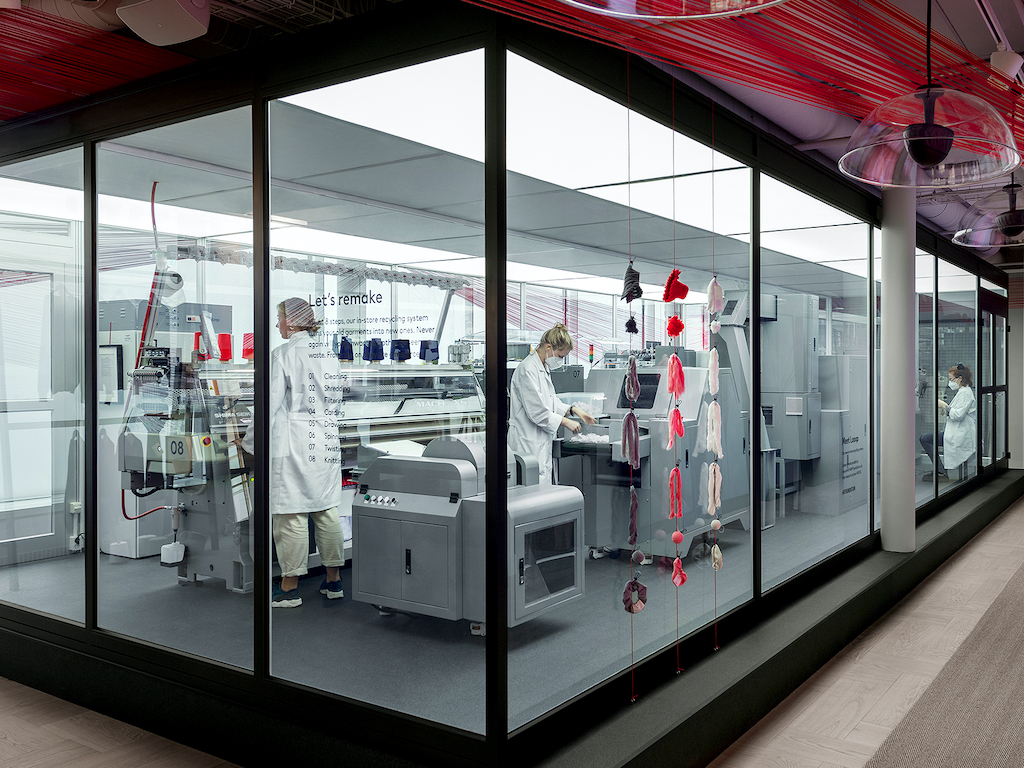3 Mins Read
Fast fashion giant H&M has just debuted a new garment-to-garment recycling system called “Looop”, which enables the transformation of unwanted clothing into new textiles. It’s the latest move in a series of circularity-focused measures the company has made in recent months as it faces greater pressure from consumers over its environmental responsibility.
Launched on Monday (October 12), the new Looop system will offer customers the ability to see how its container-sized machine recycles their own textiles into something new. Displayed at one of H&M’s Drottninggatan stores in Stockholm, the company says that allowing customers to visualise a closed loop fashion approach will encourage more people to think about the value of their worn textiles.
“This is part of a bigger plan – our ambition is to become fully circular and climate positive and we are working with many exciting projects to reach this goal,” said the company in a press release. “We must innovate materials and processes while inspiring customers to keep their garments in use for as long as possible.”

Read: Q&A with Hanna Hallin of H&M Group’s sustainable fashion B2B platform Treadler
This is part of a bigger plan – our ambition is to become fully circular and climate positive and we are working with many exciting projects to reach this goal.
H&M
Developed in partnership with The Hong Kong Research Institute of Textiles and Apparel (HKRITA) and Hong Kong-based yarn spinner Novetex, the Looop machine disassembles and assembles old garments. It first cleans and shreds them into fibres, before spinning them into brand new yarns that can be knitted into trendy new pieces – all without the use of water or toxic chemicals. While H&M admits that some new virgin materials have to be added into the mix, they pledge to “make this share as small as possible”.
“We are constantly exploring new technology and innovations to help transform the fashion industry as we are working to reduce the dependency on virgin resources,” said Pascal Brun, the head of sustainability at H&M. “Getting customers on board is key to achieve real change and we are so excited to see what Looop will inspire.”
Members of H&M’s loyalty programme will be able to try out Looop in stores for 100 SEK (US$11.33), while non-members will be charged 150 SEK (US$17). The fashion behemoth says that the proceeds will go towards material innovation and research to help the brand achieve its goal of 100% recycled or sustainably sourced materials by 2030.

We are constantly exploring new technology and innovations to help transform the fashion industry as we are working to reduce the dependency on virgin resources. Getting customers on board is key to achieve real change and we are so excited to see what Looop will inspire.
Pascal Brun, Head of Sustainability at H&M
With statistics about the enormous waste and carbon footprint of the fashion industry making headlines in recent years, consumers have been putting greater pressure on brands to clean up their act. H&M, in particular, has launched a slew of measures in a bid to retain their market share, including debuting a rental, repair and recycling concept in their Stockholm flagship and partnering up with rental fashion subscription platform YCloset via its independent brand COS to offer rental in China.
In their Conscious Collection this year, H&M collaborated with Italian biomaterial startup Vegea to offer a number of handbags and shoes using a vegan leather made from the byproducts of wine. The fashion giant will also feature pieces made using Circulose fibre, which is created from recovered and recycled denim, which reduces textile and water waste.
All images courtesy of H&M.




